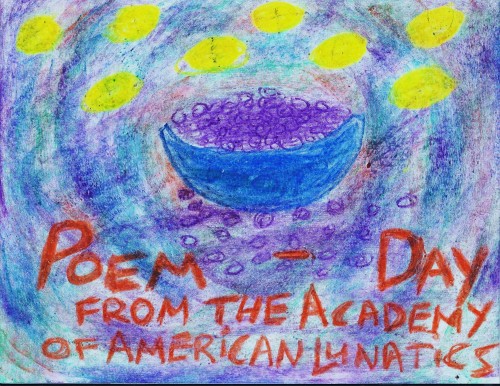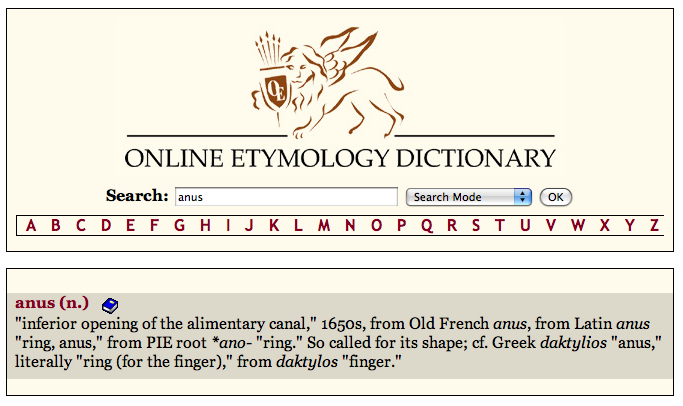ALL SEVEN SEASONS OF “MELROSE PLACE” IN SCREENSHOTS
One of the first “essays” I ever wrote in elementary school was in response to the heavy question: “What do you want to be when you grow up?” I am not sure this translates correctly in English, but there was a clear indication in the teacher’s inquiry this was about our professional aspirations. I correctly predicted at the age of six that I would move to “California, Beverly Hills” (which is one place) and inevitably be added to the cast of the epic tele-universe “Beverly Hills 90210″ Aaron Spelling produced. Without irony, I consider my watching of this show about bratty teenagers dealing with their brattiness as a key paragon in my successful and organic learning of the English language.
Organisms that do not exhibit recursion in communication still have the capacity for recursion
Hauser, Chomsky and Fitch 2002 (HC&F hereafter) incited a flurry of discussion in response to its distinction between the faculty of language in the broad sense (FLB) and the faculty of language in the narrow sense (FLN): “FLB includes a sensory-motor system, a conceptual-intentional system, and the computational mechanisms for recursion, providing the capacity to generate an infinite range of expressions from a finite set of elements. We hypothesize that FLN only includes recursion and is the only uniquely human component of the faculty of language.” (HC&F, 1569). The implication is that the observable structural differences between human language and other forms of animal communication can be explained by the exclusivity of recursion to human language. This statement also operates on the assumption that recursion is a universal trait of human language.

Image courtesy of this site.
Daniel Everett’s work with the Pirahã tribe in the Amazon presents evidence contrary to HC&F’s claims. Everett found that the Pirahã language lacked embedding, at least representational recursion1: “Pirahã does not make use of CP-embedding or recursive possessors.” (Kinsella 2010: 188)2 Nonetheless, they can, through other linguistic and pragmatic means, express concepts which in other languages would be expressed recursively (ibid.). Everett says “..Pirahã most certainly has the communicative resources to expresses clauses that in other languages are embedded…” (Everett 2005: 631) Therefore, though Pirahã does not seem to have recursion, it is by no means restricted in its expressive capacity, countering the claims of Hauser, Chomsky and Finch 2002 regarding “the rich expressive and open-ended power of human language (based on humans’ capacity for recursion),” which capacity they claim animal communication lacks because it does not exhibit recursion (HC&F, 1570). If Pirahã’s expressive capacity is not hindered by its seeming lack of recursion, then perhaps recursion is not in fact a distinguishing feature of human language (Kinsella 188), or at least not the only one: perhaps it can be found in non-linguistic and non-human domains.
Image courtesy of HC&F 2002.
This may in fact the case. HC&F 2002 themselves speculate that recursion may be evident in animal navigation and kinship cognition, and songbirds have exhibited the capacity to comprehend recursive hierarchical syntactic structure (Abe & Watanabe 2011; Gentner et al 2006). Bengalese finches exposed to an artificially-constructed, center-embedded birdsong grammar “revealed a striking sensitivity to the recursive structure of the grammatical strings [they] were exposed to.” (Bloomfield et al 2011) The finches responded equally to familiar and novel grammatical strings, but decreased in response when presented with ungrammatical birdsong strings (ibid.). This indicates that recursion is not necessarily specific to humans, and that it is only sufficient, not necessary for human language, as Everett’s work with the Pirahã indicates. Therefore, since recursion as a unique feature of language is questionable, it would be fruitful to comparatively investigate the other possibly-distinguishing properties of language— the syntax-semantics interface particularly, as well as the lexicon and the nature of phrasal categories (Kinsella 2010).
Tammy: Call For Submissions
 *Tammy is a print publication that features poetry, fiction, nonfiction, and criticism from the esteemed fringes and unguarded egresses of American letters, international writing in translation, and forms of visual art and poetics that lend themselves to the printed page. The third issue has just arrived and the editors are now reading for the fourth issue. Visit www.tammyjournal.com for more information.
*Tammy is a print publication that features poetry, fiction, nonfiction, and criticism from the esteemed fringes and unguarded egresses of American letters, international writing in translation, and forms of visual art and poetics that lend themselves to the printed page. The third issue has just arrived and the editors are now reading for the fourth issue. Visit www.tammyjournal.com for more information.
POEM-A-DAY from THE ACADEMY OF AMERICAN LUNATICS (#14)

TJ Lyons is in California doing things that dudes usually do. His first book, Things, will be out soon from somewhere awesome. Things are always what they seem. tjisadude.tumblr.com
I think I sleep in a peel that fits me better than a collar
by
T.J. Lyons
This poem came from my experience living as a banana in a Safeway for nine days before the produce people noticed me, and then they marked me down. An old woman with a pegleg bought me. This will appear soon in the ebook, The Wind Cannot Remove the Stench in My Bones, with art by Andrew Jurado.
in a Safeway for nine days before the produce people noticed me, and then they marked me down. An old woman with a pegleg bought me. This will appear soon in the ebook, The Wind Cannot Remove the Stench in My Bones, with art by Andrew Jurado.
note: I’ve started this feature up as a kind of homage and alternative (a companion series, if you will) to the incredible work Alex Dimitrov and the rest of the team at the The Academy of American Poets are doing. I mean it’s astonishing how they are able to get masterpieces of such stature out to the masses on an almost daily basis. But, some poems, though formidable in their own right, aren’t quite right for that pantheon. And, so I’m planning on bridging the gap. A kind of complementary series. Enjoy!
February 17th, 2014 / 11:26 pm
Sports Writing Snippet (1)
***
“Johnson sliced through South Africa the way a blade goes through a perfect fillet steak. He cut through the quivering hunk of meat, showing no mercy to the tendons and muscle fibres that once held it together and exposed sparsely cooked flesh.”
— Firdose Moonda, at espncricinfo.com, describing Australian Cricket fast bowler Mitchell Johnson.
(Cricket, fyi, is sometimes called “The Gentleman’s Game”)
***
The HTMLGiant Contributor & Editor Facebook Movie, 2006-2009
We began with no fanfare:
We found our way:
We made promises we couldn’t keep:
We joined in:
We thought things over:
We were honest with ourselves:
We stood corrected:
We anticipated a trend:
Forthcoming: war/lock by Lisa Marie Basile
Lisa Maria Basile, author of the chapbooks Triste (Dancing Girl Press) and Andalucia (The Poetry Society of New York), is one of the hardest working poets in New York. She is the Founding Editor and Publisher of Patasola Press, Assistant Editor of Fifth Wednesday Journal, and Editor-In-Chief of Luna Luna, my favorite online magazine.
On top of her editorial work, Basile works as a QA Assistant at MacMillan Publishers. She is a busy woman. Not too busy, it seems, to have written a third book, forthcoming this year on Hyacinth Girl Press.
I love war/lock, and believe it will be among the most important books of poetry released this year. Basile’s candid portrayal of abuse and survival is confessional in the best possible way, in that it is never self-indulgent and is, in fact, an act of generosity. Stories like these remind us that we, as trapped as we may feel in our respective subjectivities, are not alone.
ALL THE TEXTS I’D SEND YOU IF YOU WANTED TO GO TO A SERGIO DE LA PAVA TALK WITH ME ON DEAD RUSSIANS
…but then got ran over by a bus and died. No im totally kidding! but you really did get the flu and couldn’t join me.
The talk was at Housing Works, and it included two other speakers: David Gordon and Michael Kunichika.Your expectations were unclear: talk about Russian writers who, though they left us long ago, remain potent presences for readers and writers today. From Dostoevsky and Tolstoy to Vasily Grossman and Sigizmund Krzhizhanovsky, we’ll learn about obsession, madness, realism, fables, and more, in an event with all the drama and pathos (well, at least some of the drama and pathos) of the great Russian novels themselves.
Here are all the texts I would have sent you, in chronological order and without clarifying who said what, because color-coordinating via SMS goes a step too far:
truth-seeking urgency intrinsic in russian lit
antithesis to beckett & writers who focused extensively on beauty of language
falling in love w/ english language, less plot driven urgency
dostoevsky similar to conrad in terms of truth-seeking urgency
multivocality of dostoevsky
there is no right, just different truths
dostoevsky threw the best literary parties (metaphorically speaking, as a creator)
proust s parties were too long, and maybe the guests were wearing better clothes
abstract psychological curiosity in motives, including abnormalities–>russian approach
going in depth for big questions, characters not being introverted
serialization of lengthy works, such as ‘war & peace,’ adds towards creating a broader debate. they become part of the broader debates occurring during their time
some compare the creation of microcosms of russian lit to ‘the wire’
comparing to british office, where they look at the camera at moments of despair but the viewer cannot do anything to help // to embarrasing dostoevsky characters
nabokov disliked dostoevsky for his “bad writing”
dostoevsky had a v diff approach to writing from nabokov: almost got executed literally, then was told he had another five years
that is also why dostoevsky did not pursue inanimate writing, unlike tolstoy (?)
nabokov didn t like music!
neither did dostoevsky !! (probably diff reasons)
saul bellow s ‘dean of december’–>similar urgency in truth-seeking (someone from the audience)
can reading a book be so vivid it appears like a different life?
if yes, it depends on willingness of writers to go to great lengths in creating characters who go too far, embarrass themselves/ are visceral
perhaps a key element that helps bring about the urgent truth-seeking: religion s role for the writers
religion, like their fiction, was trying to explain what goes on beyond the physical
nabokov s direct ancestor was dostoevsky s jailor. weird how he was not willing to cut him any slack, considering
dostoevsky was crowd-pleasing oriented bc he lived off writing
MONEY!!!
February 11th, 2014 / 5:20 pm
Shot & a beer back
In case you missed it (I almost did), “On Smarm” is an important essay.
Speaking of the Believer, do you remember that Philip Seymour Hoffman interview? I will miss him. That seems strange though, even impossible, because that Philip Seymour Hoffman, the one I know, exists in images projecting from themselves. And those will go on sparkling, like prisms in post-loop pulse ad infinitum.
















